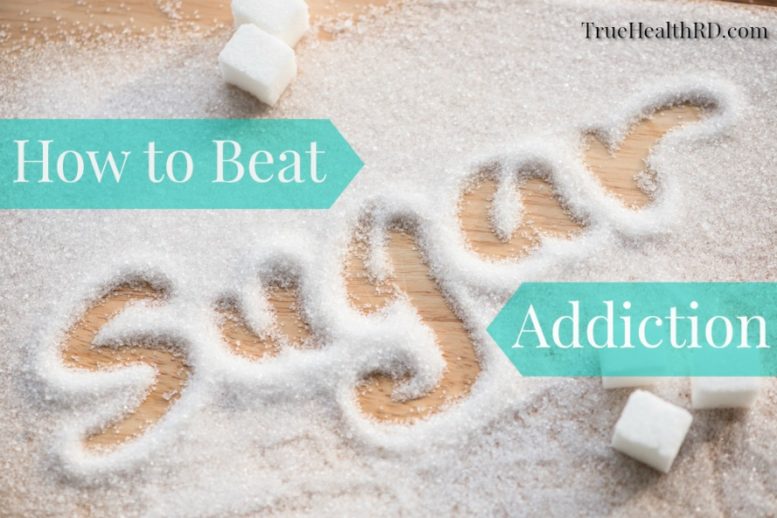Sugar intake is linked to obesity, depression, hypertension, diabetes, Candida, suppressed immune system and fatigue. Dr. Robert Lustig warns, the University of California in San Francisco’s professor of pediatric medicine “There are 600,000 food items in America. 80% of them have added sugar”. If you’re eating anything in a package, you’re eating more sugar than you realize.
But the question is are you addicted? Well…
- Do you feel like you have to have something sweet after every meal? Sure the meal was great and you feel satisfied, maybe even full, but you don’t quite yet feel complete without that piece of those Ghirardelli chocolates or Skittles you keep on your dresser.
- Have you “given up” sugar only to have headaches and moodiness then reverted back to eating sugar again? Have you tried to quit drinking regular sodas, or anything with sugar like, candies, pastries, honey or chocolate only to get killer headaches so you threw that idea out the window?
- Do you crave starchy carbohydrates such as potatoes, rolls, white bread, pastries, pasta, or white rice? Or can you just not imagine a whole day without something starchy?
- Do you reach for sugary foods when feeling stressed, anxious, sad or depressed? Stress eating is an issue by itself, but when stress or the blues strike do you tend to reach for the sugary or starchy foods vs. protein or fatty foods?
If you answered yes to any of the following questions, it’s a good sign sugar has more power on you than you think!
A study conducted at Connecticut College in 2013 found that sugar is just as addicting as cocaine. In this study researchers found that lab rats had an equally strong association between the pleasurable effects of eating Oreos as they did with cocaine or morphine. While more studies like this need to be conducted, it supports the theory that high sugar foods stimulate the brain much like drugs do, thus perhaps the reason why some people resist these foods despite much effort.
It’s not always about will power – especially with sugar because it’s actually affects parts of the brain. You wouldn’t tell a cocaine addict – “Hey, stop that”, and expect them to successfully quit. It’s not that simple.
It is possible to beat sugar addiction, but so you don’t crash and burn in the process you must take baby steps. Taking simple and effective steps to break sugar addiction and that can sidestep the headaches and withdrawals.
How to Easily and Effectively Beat Sugar Addiction – The Steps (approx 1 week each)
Step 1 – Cut all sugar containing foods you normally eat in half. Look at the ingredients list and avoid additives such as: sugar, cane sugar, agave, high fructose corn syrup, and anything that ends in –ose, such as fructose, sucrose, sucralose, glucose, etc.
Step 2 – Remove all concentrated sugar and when the sugar cravings hit, opt for medium glycemic fruits and medium glycemic foods.
Step 3 – Stick with low glycemic foods only. When craving sugar, reach for sour foods such as pickles, fermented foods such as kombucha, kimchi, sauerkraut, kefir and yogurt.
Once you have completed all 3 steps, keeping the diet full of lean meats, high fiber and medium to low glycemic foods will help prevent slipping back into a sugar addiction.
As a rule of thumb always keep in mind how addicting sugar it is. And it’s not hard to get hooked again since it’s snuck in the most unsuspecting places such as salad dressings, marinaras, sliced bread, lunch meat, etc.
References:
Connecticut College 2013 Study
Science.Mic


